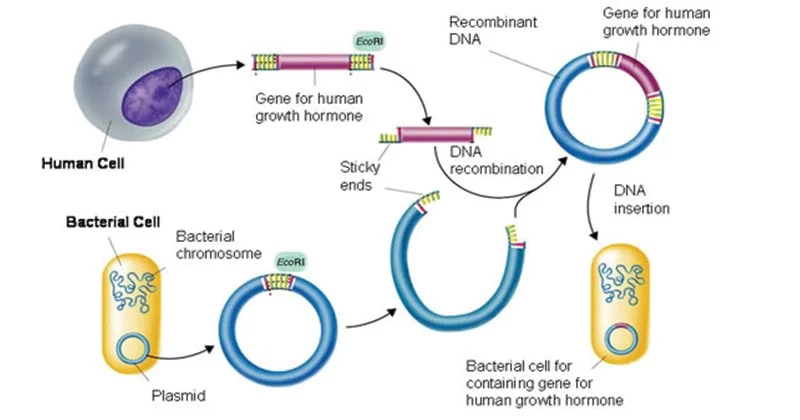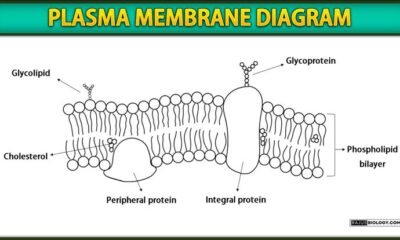Blog
Gene Cloning – Definition, Steps, Applications and Diagram

This article we will discuss about gene cloning:- definition, Applications, uses and diagram
What is Gene Cloning?
Gene cloning is also known as DNA cloning. It is a technique used to make identical copies of a specific gene or DNA segment. It helps to study the gene structure, function, and regulation, and also produce large quantities of the genes and its products.
Steps in Gene Cloning
- Isolation: The first step is to identify and isolate the gene of interest from the organism. This can be done by cutting the DNA at specific sites using enzymes called restriction enzymes.
- Insertion: The isolated gene is then inserted into a vector, which is typically a small, circular DNA molecule, such as a plasmid. The vector is used as a vehicle and helps in the replication of the desired gene.
- Transformation: The vector containing the gene of interest is introduced into host cells, through a process called transformation. The host cells then take up the vector and start producing copies of the gene.
- Selection: To identify cells that have successfully taken up the vector, a selectable marker, is introduced along with the gene. Only cells that have successfully incorporated the vector will survive in the presence of the selectable marker.
- Replication: The host cells that have taken up the vector and the gene of interest are allowed to multiply, resulting in the replication of the gene in large quantities.
- Harvesting: Once a sufficient number of cells containing the cloned gene have been produced, they can be harvested and the gene or the protein it encodes can be extracted and studied.
Applications of Gene Cloning
Gene cloning is most commonly used in the following fields:
- Medicine: Gene cloning helps to produce a large amount of therapeutic proteins like insulin and growth hormones, that are used to treat a variety of diseases.
- Agriculture: Gene cloning techniques are used to introduce desirable traits such as disease resistance or increased yield into plants and create genetically modified (GM) crops.
- Biotechnology: Gene cloning is used for producing enzymes and other proteins for industrial processes such as biofuel production or pharmaceutical synthesis.
- Research: Knowing the function of specific genes and their role in disease requires gene cloning.

 Blog8 months ago
Blog8 months ago[PPT] Human Reproduction Class 12 Notes
- Blog8 months ago
Contribution of Indian Phycologists (4 Famous Algologist)
- Blog8 months ago
PG TRB Botany Study Material PDF Free Download

 Blog8 months ago
Blog8 months agoCell The Unit of Life Complete Notes | Class 11 & NEET Free Notes

 Blog8 months ago
Blog8 months ago[PPT] The living world Class 11 Notes

 Blog8 months ago
Blog8 months agoPlasma Membrane Structure and Functions | Free Biology Notes

 Blog8 months ago
Blog8 months agoJulus General Characteristics | Free Biology Notes

 Blog8 months ago
Blog8 months agoClassification of Algae By Fritsch (11 Classes of Algae)













